Charging an electric vehicle in public can range in price from free to very expensive. When we recently charged a new 2022 Chevrolet Bolt at an EVgo DC fast charger (DCFC) in Bedford, NH, we discover the pricey end of the spectrum can be more than it would cost to fuel a "gas-guzzling" V8-powered muscle car.
Related Stories:
Big Mistakes To Avoid When Charging an EV In Public
Many Public DC Fast Chargers For Electric Vehicles Are Slower Than You’d Think
Quick Stops At Level 2 Public Electric Vehicle Chargers Are Worthless
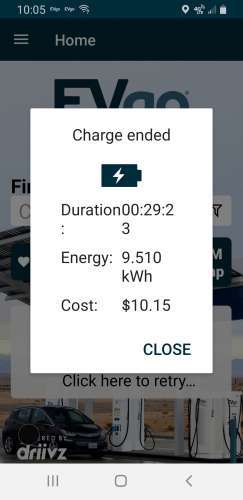
$10.15 To Add 34 Miles of EV Range
We charged up a Chevy Bolt using the EVgo DC fast charger, and the bill was $10.15. That amount of money added 34 miles of range to the Bolt. So, the cost per mile of energy was 30 cents per mile. Let’s compare that to a 2021 Dodge performance car we tested the prior week.
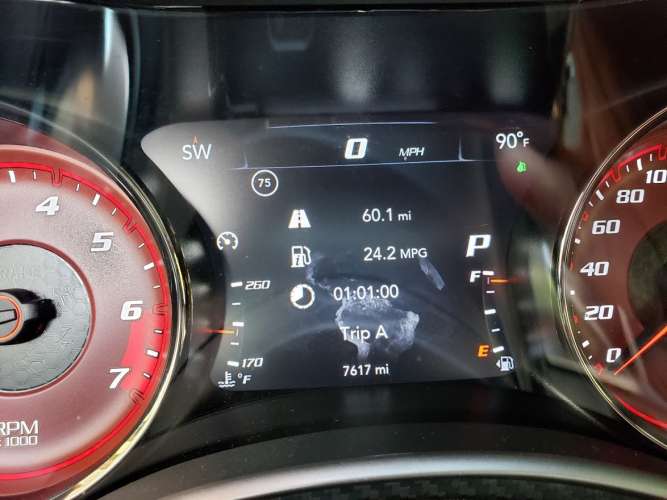
The Dodge had 797 hp, and it returned a combined fuel mileage of 24 MPG in our use on the same route we tested the Bolt. We paid $2.90 per gallon for the gasoline it uses. Doing some “goes in’tahs,” the cost per mile for energy in the muscle car turns out to be 12 cents. Thus, the cost per mile to energize the Bolt was roughly triple what the V8 gas-powered car cost us.
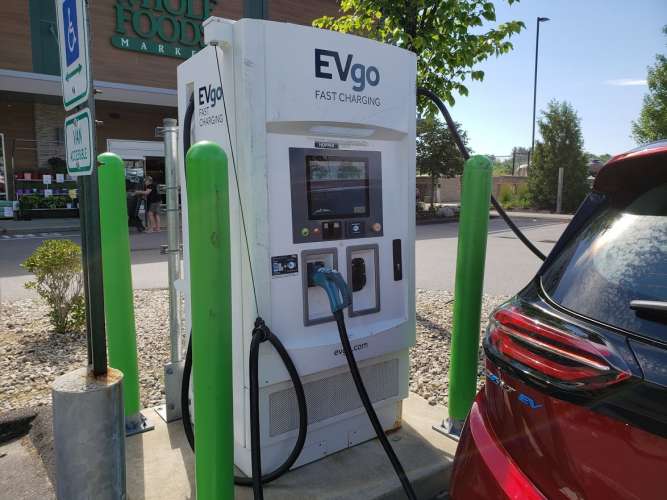
Charging Etiquette
When charging in public one is supposed to quit charging when one’s EV reaches 80% state of charge. The reasons for this are two-fold. First, the rate at which charge can be added to an EV battery is more rapid below 80% and much more time-consuming as the battery reaches full. Second, EV chargers are in very short supply. We need to ration them.
On my route from the metro Boston area to the lakes region of New Hampshire, there are exactly zero public DC fast chargers. In order to charge at a DCFC, I took a slightly longer by time route to swing by one of only two DCFC charging spots in that area. Google “Henniker NH DC Fast Chargers” if you want to see what I mean about no chargers. I needed to top-off in order to complete the 200+-mile route I was making. So, I broke charger etiquette, and I charged to full.
I also charged at the DCFC because I wanted to test my EVgo membership RFID card and account and see how long the DCFC took to add back miles. Both were successful tests.
Charging For Free
Coincidental to my test, GM was running a free-to-charge promotion day during the week I had the Bolt. I think free anything is great, but I always wonder, what’s the hidden agenda? If charging up an EV is very affordable anyway, why does there need to be a promotion to make it “free?” If Dodge offered free gas to muscle car owners, I suppose folks would jump at the chance for a free fillup. But why make EV charging free?
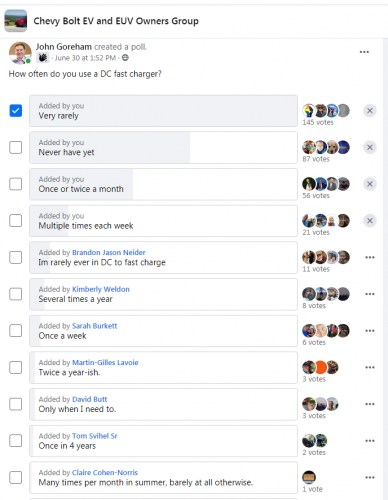
The answer is to get EV owners to the chargers and have them try out the experience. You see, when we poll owners of EVs, most report that they only charge at home, and almost none report using DC fast chargers.
When I plugged into the EVgo DC fast charger, I hadn’t thought about the cost. After all, we constantly hear how affordable EVs are to power up. I have done the math at my own home, and I know that the cost is typically about five to seven cents per mile of range I add back on my home charger using my relatively pricey Boston-area electricity. $10.15 for just 34 miles was a “shock.” Get it, shock. Bet you never heard that in an EV story before.
Related Story: New Hampshire Innkeepers Demonstrate EV-Driving Guest Best Practices
Feel free to tell us in the comments below what you typically pay to charge in public at a DC fast charger and how that cost compares to your cost at home.
John Goreham is a long-time New England Motor Press Association member and recovering engineer. John's interest in EVs goes back to 1990 when he designed the thermal control system for an EV battery as part of an academic team. After earning his mechanical engineering degree, John completed a marketing program at Northeastern University and worked with automotive component manufacturers, in the semiconductor industry, and in biotech. In addition to Torque News, John's work has appeared in print in dozens of American newspapers and he provides reviews to many vehicle shopping sites. You can follow John on TikTok @ToknCars, on Twitter, and view his credentials at Linkedin



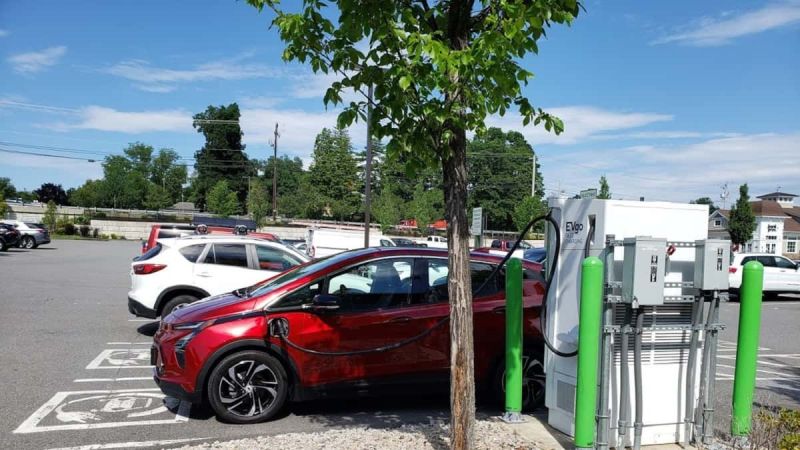




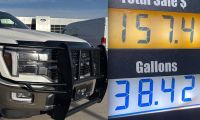




Comments
Just out of curiosity, John,
Permalink
Just out of curiosity, John, how much does it cost you to fuel your gas car at home? I know what it costs me to charge up my EV at home, and if I take advantage of rates, it's ridiculously cheap. And since I charge almost exclusively at home, I do very well on that score.
Doesn't it all come down to how much long-distance travel you do, and how available is home charging?
There is a problem related to people who do not have dedicated parking spaces, or who live in apartments or condos where charging is not yet available. I acknowledge those problems. And for these people, then EV or even a plug in hybrid is probably a non-starter. But there are also lots of people who do have access to home charging and for them the equation is very different.
We plan on doing some long-distance car travel, and when we do we will have to charge on the road. But before I go I will research rates and terms. The fact that nationally some states charge for the energy and some charge for the time just adds a ton of confusion to the situation. And the relative lack of high speed chargers is very problematic. But if you look back to the early days of gasoline vehicles, you will find similar situations where sometimes drivers had to go to the local blacksmith to get a can of gasoline.
PS: My great-grandmother had an EV. She liked it. It was in the early 1900s and she charged at home.
You are wrong about charging
Permalink
You are wrong about charging cost! I pay $20/month for unlimited charging of unlimited duration here in Los Angeles. Suggest you revise your article!
That sounds like a great plan
Permalink
In reply to You are wrong about charging by Susan (not verified)
That sounds like a great plan, Susan. Tell us which DC Fast Charger company offers that plan so the readers can take advantage of it.
I've owned an EV for about 3
Permalink
I've owned an EV for about 3 months. I have paid for charging away from my home 5 times and it cost collectively about $50 and about $30 per month of additional electricity at home using my level 1, 110 charger.
We have driven just over 3500 miles. $110/3500 miles is $.03 per mile. Gas is over $4 a gallon, $4.30 today in Utah. My last ICE car got a pretty good 27 miles per gallon. $4.30/27miles is $.16 per mile. That's 5 times more!
There is no way buying gasoline is cheaper!!
Great info, Selena. What was
Permalink
In reply to I've owned an EV for about 3 by Selena (not verified)
Great info, Selena. What was the last price you paid for a public DC fast charge, and how much range did you gain?
This is such a disingenuous
Permalink
This is such a disingenuous article holy s***.
What he neglected to mention is that EV charging slows down after 80%. Charging stations are rated per minute, so if you're charging past 80%, it's going to be more expensive because it takes more time to charge.
I use EVgo regularly. It cost me $28 to charge from 15% to 100%. It was rated around ¢30/min, ¢24/min if you have a membership. If I charge only to 80% it would cost me around $12-$14
The story absolutely does say
Permalink
In reply to This is such a disingenuous by Darqnyz (not verified)
The story absolutely does say that charging slows down after 80% SOC. It's sort of the whole point.
Literally no one charges an
Permalink
Literally no one charges an EV above 80/90% at a fast charger. Your paying by the minute, the last 5% on a bolt takes over 15 minutes while the first 5% takes 5 minutes... I can charge my model 3 to 80% for 10$ which has a battery 2x the size of that bolt, but if i were to fill to 100% it'd cost me 20$. Nice gas propoganda.
This writer is biased as hell
Permalink
This writer is biased. I love my SRT, but I am honest. Literally cost $7.35 to charge my wife's tesla from like 20% to full (90%) And range is around 290 miles. Literally over the month it costs around $50 for my SRT with about the same amount of miles was over $300.
Where do you typically charge
Permalink
In reply to This writer is biased as hell by Jason (not verified)
Where do you typically charge your Tesla, Jason. On what type of charger?
This article was inaccurate
Permalink
This article was inaccurate and misleading. I own an EV, but I do not have to pay this outrageous cost as quoted in this article when using public chargers. Depending on the chargers provided by different providers and locations, the cost vary from $0 to 1/3 of the cost reported in this article. In my case, it costs me $0 a month using free chargers. My EV mileage is averaging about 3000 miles a month.
Thanks for adding that
Permalink
In reply to This article was inaccurate by Quitjob (not verified)
Thanks for adding that perspective, QuitJob. Please note that we point out exactly what you said in the very first sentence of the story. What is the most you have paid at a DC Fast Charger?
Seven-year inflation for
Permalink
Seven-year inflation for internal combustion-engined car MSRP is 48%.
Seven-year inflation for electric car MSRP is 83%+, and this includes taxpayers and ICEV buyers helping to pay for offsetting production costs of EVs.
If EVs were ever to be the panacea as their proponents claim, there'd be no need for government leverage, no need for massive spending bills forcing taxpayers to pay for charging stations.
Ultimately, the leverage for EVs will prove to be a ruse for mass transit.
Well, a burger at Ritz is 10X
Permalink
Well, a burger at Ritz is 10X more $$ than at BQ. First, the Bolt has a max charging rate of 50 kw but charges ar lower rates, then you used one of the most expensive networks that it’s fee is based on time, per minute! No wonder 10kw were very expensive. LOVE the cost comparison with a gas guzzler, you say, gets 24 mpg? Now, that gas guzzler will always need gasoline at whatever price per gallon. An EV charging at home, average 15 cents per kw to zero at complementary stations, yes, these do exist, will always be cheaper that a gas car. Add the two $100 oil changes a year, the $20 air filter, and an EV is $220 less plus. BTW, the auto insurance premium on the Bolt is cheaper than on the 797HP vehicle! Lol. Thanks for the giggles. Oh, what’s next? A night day at Motel 6 vs at a luxury brand hotel? Thanks
I'm waiting for the day when
Permalink
I'm waiting for the day when EV comes to NASCAR . . . and pit stops will take 45 minutes.
Pagination